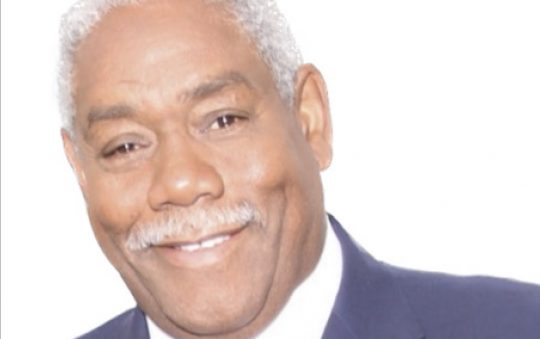
A White House statement suggesting that construction funding for historically black colleges and universities might be unconstitutional reveals a fundamental misunderstanding that the schools favor blacks and other minorities over white students, advocates for the schools said Monday.
Because they are called HBCUs “suggests to some that the institutions are for blacks and not others, or that blacks are provided preferences at these institutions. Neither is the case,” said Lezli Baskerville, president of the National Association for Equal Opportunity in Higher Education, a not-for-profit advocacy organization for HBCUs and other predominantly black institutions.
President Donald Trump on Friday threatened to challenge under the due process clause of the Fifth Amendment a construction funding program for HBCUs, lumping it with other programs that he said “allocate benefits on the basis of race, ethnicity and gender.” The statement was attached to a spending bill he signed Friday to keep the government operating through September.
It surprised many, considering Trump had promised to support HBCUs both during his campaign and during very public Black History Month meetings, when HBCU presidents posed for pictures with the president in the White House. Several HBCU advocacy groups said they immediately called the White House and were assured that the construction funding would be safe.
“The administration intends to implement the HBCU Capital Financing Program,” the United Negro College Fund said in a statement. That part of Trump’s statement may have just been administration lawyers “perhaps not fully understanding the legal basis for federal HBCU programs,” said the organization, which supports HBCUs.
Advocates pointed out that HBCUs do not discriminate on basis or race, ethnicity or gender. In fact, they were set up in direct response to predominantly white colleges and universities that refused to admit blacks or other minorities.
Roughly a fifth of students and a fourth of faculty members at HBCUs are not black, advocates said. In fact, there are five HBCUs that are not even majority black, Baskerville said.
Trump, in a statement on Sunday, said that his previous statement did not “affect my unwavering support for HBCUs and their critical educational missions.” The statement did not address whether the White House still thinks funding for HBCUs could be unconstitutional.
Democrats immediately pointed to the statement as proof that Trump’s plans to support HBCUs were a mere public relations ploy. Despite his statements of support, Trump suggested funding for HBCUs in his budget at the same level as what was offered under President Barack Obama’s last budget.
Democrats pointed to proposed cuts in federal student-aid programs, which they said would disproportionally affect minority students.
“Sadly and shamefully, HBCUs, including the schools that President Trump met with, are left to wonder whether he wants to help or hurt them,” said Congressional Black Caucus Chairman Cedric Richmond, D-La., and Rep. John Conyers, D-Mich., the ranking Democrat on the House Judiciary Committee.
The Trump administration has continued to reach out to HBCUs, with Education Secretary Betsy DeVos agreeing to give her first commencement address as secretary at Bethune-Cookman University on Wednesday. DeVos said late Sunday she would “continue to be an advocate for them and for programs that make higher education more accessible to all students.”
State NAACP officials called for university president Edison Jackson and Board of Trustees Chairman Joe Petrock to resign on Monday over the DeVos invitation, saying faculty and students have alleged intimidation tactics from university officials in an attempt to quash protests during the graduation.
DeVos was criticized earlier this year for calling historically black colleges “pioneers” of school choice. She later acknowledged that the schools were created because African-Americans had been excluded from predominantly white schools.
Trump also plans to move an office dedicated to these institutions from the Education Department to the White House. He has yet to choose a director for the Initiative on Historically Black Colleges and Universities.






